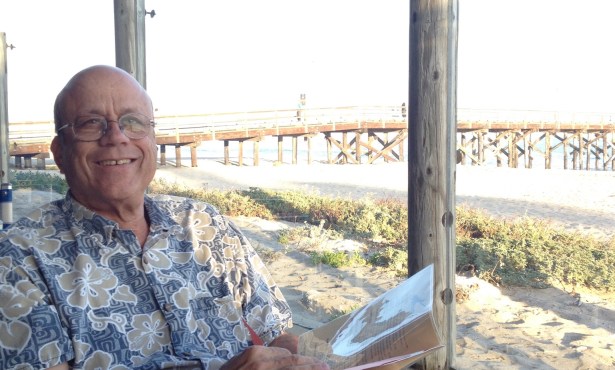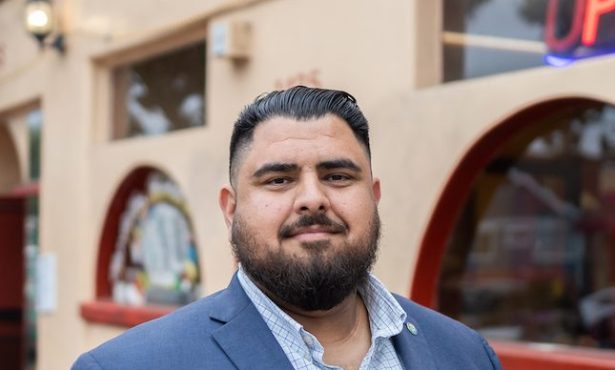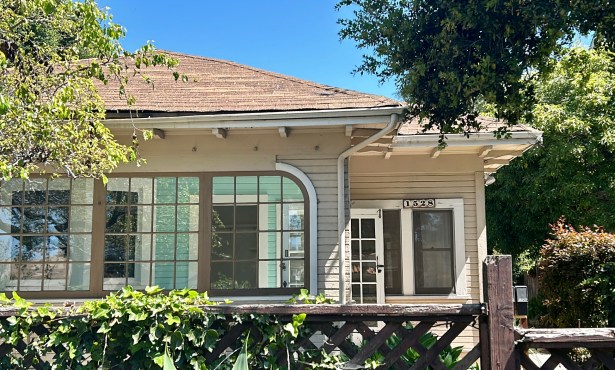Better Food Ahead
Organic Local Food Cart Rolling Your Way
While San Francisco’s Board of Supervisors gained notoriety for putting a ban on toys in McDonald’s Happy Meals, there is a much quieter revolution going on in Isla Vista to unseat fast food and replace it with organic, local, and sustainable food. The UC Santa Barbara Student Collective wants to place an organic food cart on campus. They have a spot in mind near Storke Tower. Offering an alternative to Panda Express, Wendy’s, and other such places, the cart would be stocked with organic and local food, bagels, fruits, vegetables, and sandwiches.

“We want to make it a one-stop place to get everything you need,” said Ivette Casas, food and event director for the collective. “We want to open up the possibilities.”
With a crockpot and the lure of Tofurky meatball sandwiches, Casas and other volunteers set up a temporary stand in mid-October just to see if students seemed open to the idea. A few people turned up their noses at Tofurky, Casas said, claiming they were “meat eaters,” but overall the reception was good and the UCSB Student Collective raised $150. “A lot of students said, ‘Why aren’t you out here every day?’” Casas was happy to report. Right now, she said, finding healthier options means patronizing restaurants such as Silvergreens in I.V., or making food at home.
The food cart is still in the preliminary stages. Its initial design, drawn by Francisco Vasquez, the collective’s art director, includes solar panels and other features, like a dispenser to fill water bottles, that are in tune with the student collective’s sustainability goals.
The idea of the food cart was inspired by a storefront facility in Berkeley run by CoFED-the Cooperative Food Empowerment Directive, a student-run organization with the goal of training others to offer better food at their campuses. Casas and other members of UCSB’s collective have gone to meetings sponsored by CoFED. At this time, Casas said, there are six core members, and 60 who receive updates through a listserve. In the future, she said the collective would like to get more students involved, especially in leadership roles.
While designing and stocking a food cart might not seem like a huge task, Casas explained the difficulties involved. First, the collective has to raise the money for the cart. Then she and others need to present their designs to contractors and decide on a reasonable bid. And finally, the cart needs to be stocked with provisions and overseen by collective volunteers.
“We’re starting a business from the ground up,” Casas said. “It is really exciting.” She said that the collective has to break down how much each item will cost, even down to a slice of tomato, “so we can prove we are a viable business.”
The collective is holding fundraisers, writing grants, and soliciting donations. The next event is a dinner at the Mosher Alumni House on December 4. It costs $35 for community members and $20 for students. It will feature a sustainable, organic, and ethically-sourced dinner. David Cleveland, a UCSB professor of environmental studies and the winner of a sustainability award, is scheduled to speak. There will also be a silent auction with prizes. One is a sustainable dinner served in the recipient’s home by the collective, another is a mural painted by Vasquez.
Casas said the collective hopes to raise $5,000 by the end of the quarter. This money would go toward paying for the food cart and also toward subsidizing its contents. She explained that the cart’s food needs to be affordable: Many students are on a budget and buy a $2 piece of pizza or a $1 burger because that’s all they can afford. What the collective wants to do is offer good food at the right price.
But feeding hungry students is not the collective’s only agenda. The cart will be equipped with video displays that will show documentaries about sustainability. “To serve as an educational tool,” Casas said. Another screen, near the cash register, would show students where the food they purchased came from and nutritional information about it.
If it seems like the collective is a long way from attaining its goal of running a food cart, you haven’t met Ivette Casas and intelligent and enthusiastic advocate for her cause. She can list all of the business skills she is acquiring the road to making the cart a reality, and can even see a time in the near future when the collective will have a storefront facility with a commercial kitchen.
For now, UCSB students will have to be content with the food they have available on campus. Maybe, just maybe, they will feel moved to get involved in making the cart a reality.



